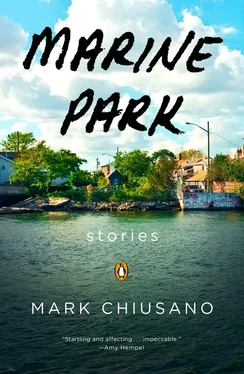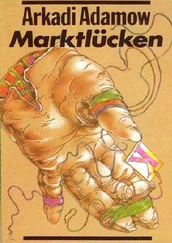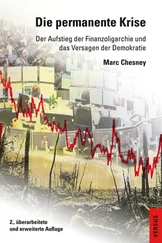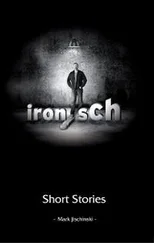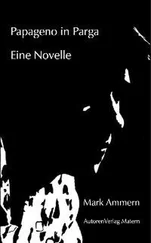Harlan’s experience with herpes began with a hard day at work. He had a job as a stringer for the New York office of the Washington Post , and because there was so much crime in New York in those days, the paper had a full office. Washingtonians loved reading about how unclean New York was. It was the only thing that people responded positively to in readership surveys. New York was a mess. Harlan himself had gotten mugged three times in the past month, so that he’d taken to taping a five-dollar bill under his sock, only a dollar or two in his wallet. The annoying part was the trip to the DMV for a new license. He needed the license because he drove in to work, Brooklyn to the city, and it was one day on the drive that he started feeling particularly under the weather. He trudged the stairs up to the eighth floor because the elevator was broken again.
In the office for three days straight he wrote crime copy with a 102-degree fever. It came in bursts with the chills, so that he couldn’t turn the fan off fast enough to get the heavy woolen blanket he’d taken to stowing under his chair. He went to the doctor, who gave him ibuprofen and asked if he’d been to Europe recently, or a farm, and didn’t understand anything until he got the blisters on his penis. One doctor misdiagnosed it as a ruptured birthmark, but the infectious disease unit at Maimonides knew better. Even stringers at the Post had health insurance. He won a Scripps Award for a series he was working on during that time, but his head wasn’t in it.
Harlan reacted by looking for someone to blame. He never talked about it openly, and it began to eat away at his chest from the inside. He made little whimpering noises at his desk when the typewriter broke. He never asked Desmond about it. Desmond was cold for a few weeks after the Ida-car situation. Harlan hadn’t considered Ida a possibility. They hardly knew each other. He formed the mistaken idea that he got it from an ex-girlfriend who’d recently come out of the closet, and he began to feel disgusted by the idea of gay sex. He used the word faggot indiscriminately. Still, he went to work every day.
He began to play out imagined situations in his head. He didn’t like the idea of having sex with someone without telling them about it. He also wasn’t very good at talking to people. It was the only thing holding him back as a reporter, though he wrote good copy. If he couldn’t tell anyone and he didn’t have sex, then he couldn’t get married. No marriage, no kids, no grandkids, getting old alone. He’d be like his uncle Vance, who called on the phone every Friday. The call came at the same time every week. It was a before-dinner call. Just checking in, his uncle Vance would say. And he’d say good-bye: Good to talk.
One afternoon Perry called Harlan at his office. He told him that he wanted to get a drink together. Harlan assumed that it was something about his recent behavior and the slurs. He was indignant, then embarrassed. He left his coat on the rack on the way out.
At the bar, in Greenwich Village, at the place where West Fourth Street meets West Twelfth, a nightmare of geometry, they sat in the dark back and drank McSorley’s beer brewed in a basement nearby. Perry and Harlan had been drinking it since they were kids, taking the train in from Bensonhurst. It had an aftertaste, like candy, that they’d never found anywhere else. Harlan used to put a piece of bread in his pocket before going out, when they were in high school, and eat it before sneaking back into the dark house, to mask the smell. Italian bread was the only thing that could do it. After four beers Perry put a hand on his leg. Harlan left it there for a minute, and then angled away. After another beer Perry put his hand on the other leg, and Harlan left it. In the small bathroom, with graffiti on the walls, Perry leaned down and unbuttoned his pants, and Harlan put his hands through Perry’s long hair.
At first Perry decided that he’d go on with his usual life. That it was his right — this wasn’t a Scarlet Letter — to do what he wanted as long as he wasn’t endangering anyone else. No one died from herpes. Then, after weeks of no communication from Harlan, in the moment after he told a strange man about it while they walked out of a bar in Bay Ridge to hail a taxi to his home, he realized his mistake. The look on the man’s face did it. It’s what? he said. Blotches appeared on his face. He took the cab himself and the cab screamed away. Perry sat on the curb. Then he walked home. He decided to put sex out of his mind until he could think of a better option. Still, he couldn’t escape it entirely. One morning after not enough sleep, staying awake walking the night streets, he emerged from the shower and, without paying attention, took his roommate Carol’s towel. He rubbed it all over his body, trying to get clean; the way the steam gets under pores, as if something has been forgotten. Jumping into a pile of autumn leaves as a young boy, the tongue of a first kiss, the particular light from a dying lightbulb in the ceiling of that room, his voice whispering, Maybe. He rubbed and he rubbed. He didn’t realize it was her towel until she was already in the shower, and by then he didn’t want to knock or make excuses. Besides, the thing couldn’t be that transmittable.
Within months, Carol was displaying symptoms that she mistook for mosquito bites. She was new to the city. She came from Michigan. She had grown up on a horse farm. She had always wanted to be a milkmaid princess, and then, in high school, a theater star. She hawked tickets to comedy clubs late nights, to make the money for auditions. She didn’t tell her parents about it. She read plays over breakfast, walked the lonely morning streets with coffee, went to see anything avant-garde, tentatively liked the Living Theatre. She’d never had sex before. She assumed that it would be like a thunderclap. She had the low-grade symptom kind, and she didn’t know until after she was married, to a good man who moved them to Suffolk County, where she taught drama in the junior high school. He had words for her. They thought about getting a divorce. They slept for many months afterward with their backs to each other, until one day the husband turned over. She looked at him over her shoulder with something resembling desire. Fuck it, he said.
SHATTER THE TREES AND BLOW THEM AWAY
It was 1944 and they told us to take the overnight to Jemez Springs, New Mexico, and when I said, Where’s that? the guy at the ticket counter at Grand Central train station said, Middle a bumfuck nowhere, that’s what I know, and the guy in the conductor’s cap next to him said, Why all the one-way tickets to Los Alamos lately, and I said, Some things are classified for a reason. I was gone.
Lise was in the aisle across from me as we passed into the tunnel, and I saw her reading The Science of Mechanics . When she saw that I didn’t get off in Chicago like everyone else, she asked if I was by chance a man of science, and I told her engineering. She did particle physics, and already we were sharing a secret.
The compound was built on the site of what used to be an all- boys school. They had a bit of a library, but now the Army Corps was underneath it, building a particle accelerator. Everything was claptrap — the wooden sidings, the paint above the windows. My room didn’t even have a shower, although hers did, and I begged her to let me use it, an excuse to be close by, her roommate yelling from her bedroom when I tramped back in, Is he here again?
Everyone spent all day at work. You can’t understand it. Somebody had come to each of us, put a pointer finger in the center of our chests, and said, Serve your country. We who were too scared for infantry, and spent all our post-finals beer money worrying if we’d lose our draft-exempt status. But they said, make us the Gadget, and everything will change.
Читать дальше
